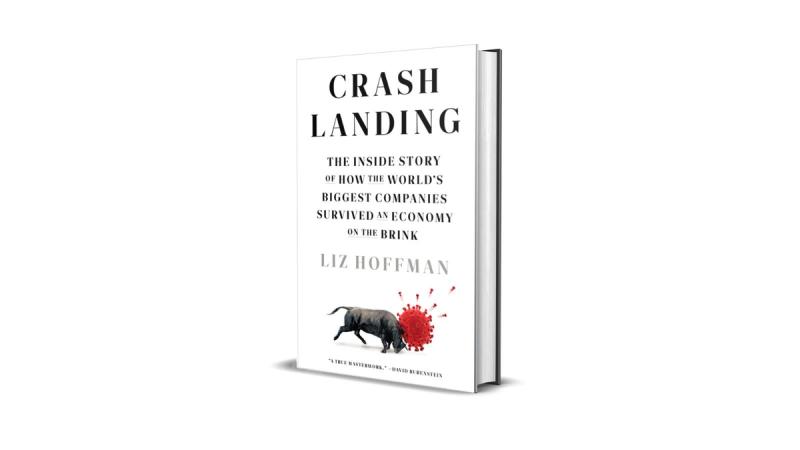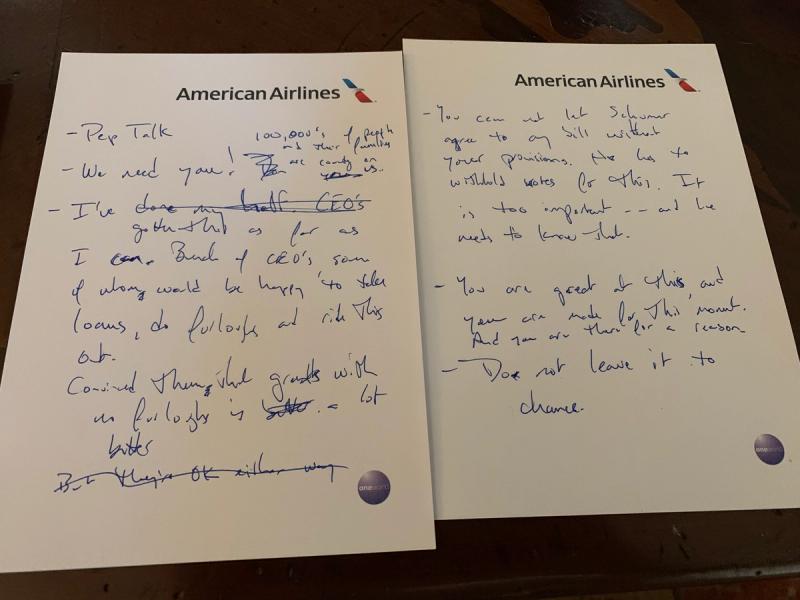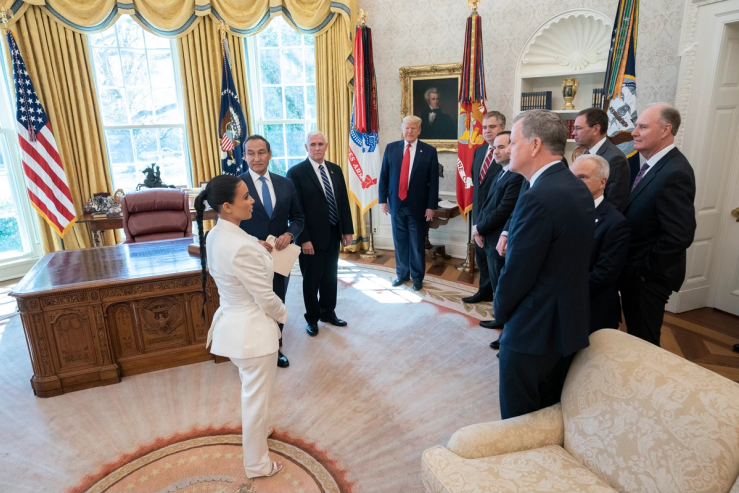Book Launch
This is an excerpt from my book, Crash Landing: The Inside Story of How the World’s Biggest Companies Survived an Economy on the Brink. It’s out today and on sale here from your favorite bookseller.

The Scene
Doug Parker didn’t want to be the guy who ruined Christmas.
It was December 2020, and the American Airlines CEO had made a promise to get the 12,000 workers who’d been furloughed in October, after the government’s aid ran out, a paycheck by Christmas.
He badly wanted to keep it. American’s workers had been through hell—yanked around by politicians, furloughed by the company they trusted, leaving many of them financially strapped. More than 19,000 of the company’s employees had dipped into their 401(k) accounts to help get through the crisis, pulling out an average of $30,000 apiece. Most made less than $20 an hour before they were furloughed. They were dipping into a rainy-day fund they didn’t have.
And so American Airlines executives gathered in the company’s boardroom in Fort Worth on December 21. Parker had made that promise weeks earlier, when prospects for a second round of government aid had looked more likely. But the $900 billion bill, which included an extension of the $25 billion earmarked to cover airlines’ payroll, had stalled heading into the presidential election, and now Washington was pure chaos, with Republicans trying to forestall any momentum a Democratic majority, about to take over the presidency as well, might manage. Parker realized he’d made a multibillion-dollar promise he might not be able to afford.
Nate Gatten, the airline’s top in-house lobbyist, had dialed in from Washington to provide a prognosis. The bill had cleared the House and looked like it would easily pass in the Senate, but the big question was whether the president would sign it. The official White House account had tweeted its support of the bill, but the chatter in Washington was that Trump, who had decamped for Mar-a-Lago in the wake of his loss to Joe Biden, wouldn’t sign it.
“Hang on a sec,” Parker said. He stepped out of the boardroom and dialed Steven Mnuchin, who picked up on the first ring. “I’ve got to decide right now if I’m going to press a button on these checks,” Parker said. “If you were me, what would you do?”
It was a dicey call. News of the bill’s enshrinement into law would almost certainly move financial markets, which meant that Mnuchin needed to keep his cards close. But the two had developed a frank and productive relationship over the past nine months, and with billions of dollars on the line, it was worth a try.
Parker got nothing from the tight-lipped Mnuchin, which he interpreted as a sign that there was a real chance that the president, stewing in a post-election funk in Florida, might just sit on the bill. That meant American was about to spend billions of dollars that it didn’t have. Parker kept his concerns to himself as he stepped back into the boardroom. “Screw it,” he said, and told his team to cut the checks. American’s workers had sacrificed enough already. The least he could do—after a year of furloughs and early retirements and disease and death—was get them a paycheck by Christmas.
The next day, Parker’s phone rang. It was Mnuchin, who opened with a nervous laugh. “Did you see what’s going on?” Trump had just released a video saying he wasn’t going to sign the bill.
“The bill they are now planning to send back to my desk is much different than anticipated. It really is a disgrace,” he said into the camera. Among his gripes: stimulus checks for the family members of undocumented immigrants, $86 million in foreign aid to Cambodia, $25 million to combat the invasive species of Asian carp, $1 billion for the Smithsonian museums. He also wanted the $600 checks cut to households, which he called “ridiculously low,” to be raised to $2,000 and add more money for small businesses.
Mnuchin told Parker that he hadn’t anticipated this, but that a nagging doubt was the reason he had been circumspect the day before. “Hang in there,” he told the CEO, who had just spent billions of dollars his company didn’t have to spare.
Six days later, Parker was in his car in Telluride, Colorado, waiting for his wife to come out of the grocery store. The couple had gone skiing for the New Year, though Parker had spent much of the trip on the phone with his team continuing to fret about American’s finances. When the company had cut thousands of payroll checks to employees who had been furloughed earlier in the fall, he had been expecting Congress to pass another round of Covid relief, and for the president to sign it. That still hadn’t happened.
The airline industry was still bleeding. An uptick in holiday travel—one that public health officials had sharply criticized and would soon blame for a surge in Covid-19 cases—had done little to drag carriers out of the financial hole that the pandemic had dug. And President Trump had not signed the $900 billion Covid relief bill, the second huge stimulus bill passed by Congress to combat the economic effects of the coronavirus.
Parker had been reaching out to anyone he could think of for reassurances; Mark Meadows, Trump’s chief of staff, had assured him that the president would indeed sign the bill into law, which would send billions of dollars in payroll aid to the air-lines to compensate for the checks the company had just cut.
In a flash of frustration, Parker dialed Roy Blunt, a Republican senator from Missouri, on his cellphone to see what was going on. Blunt told Parker that he didn’t know what the delay was; President Trump had changed his mind and indicated that he would sign the bill, and Blunt himself had personally escorted the bill out to the Washington airport, where Mnuchin and House Speaker Kevin McCarthy had flown it to Mar- a Lago for the president’s review and signature.

Finally, at 7:10 p.m. on Sunday, December 27, Parker’s phone dinged with a text from McCarthy. “I got POTUS to sign it.” A follow- up read: “The hardest I’ve ever worked. Mnuchin and I never gave up.” Nine minutes later, The Wall Street Journal sent out a breaking- news alert confirming that the bill was now law. Parker sent a message to McCarthy that bordered on pandering: “Tens of millions of Americans are better off as a result.”
That was certainly true, though it undersold the pain that many had endured while the nation’s leaders politicked throughout the late summer and fall. The game of chicken played by the two parties, each angling for an edge in the November election, had been costly.
While the economy had added jobs each month between May and November, those gains had steadily dwindled as employers had lost confidence in government action. Only half of the thirty million jobs lost in the first two months of the pandemic had come back. A week later, December data would show that the economy had lost 140,000 jobs in the month. The report, one economist told CNBC, showed the economy was “not just tapping on the brakes, but actually has been thrown into reverse.”
What had once been projected, or at least hoped for, as a quick snapback in the economy was slipping away, if it ever existed at all.


